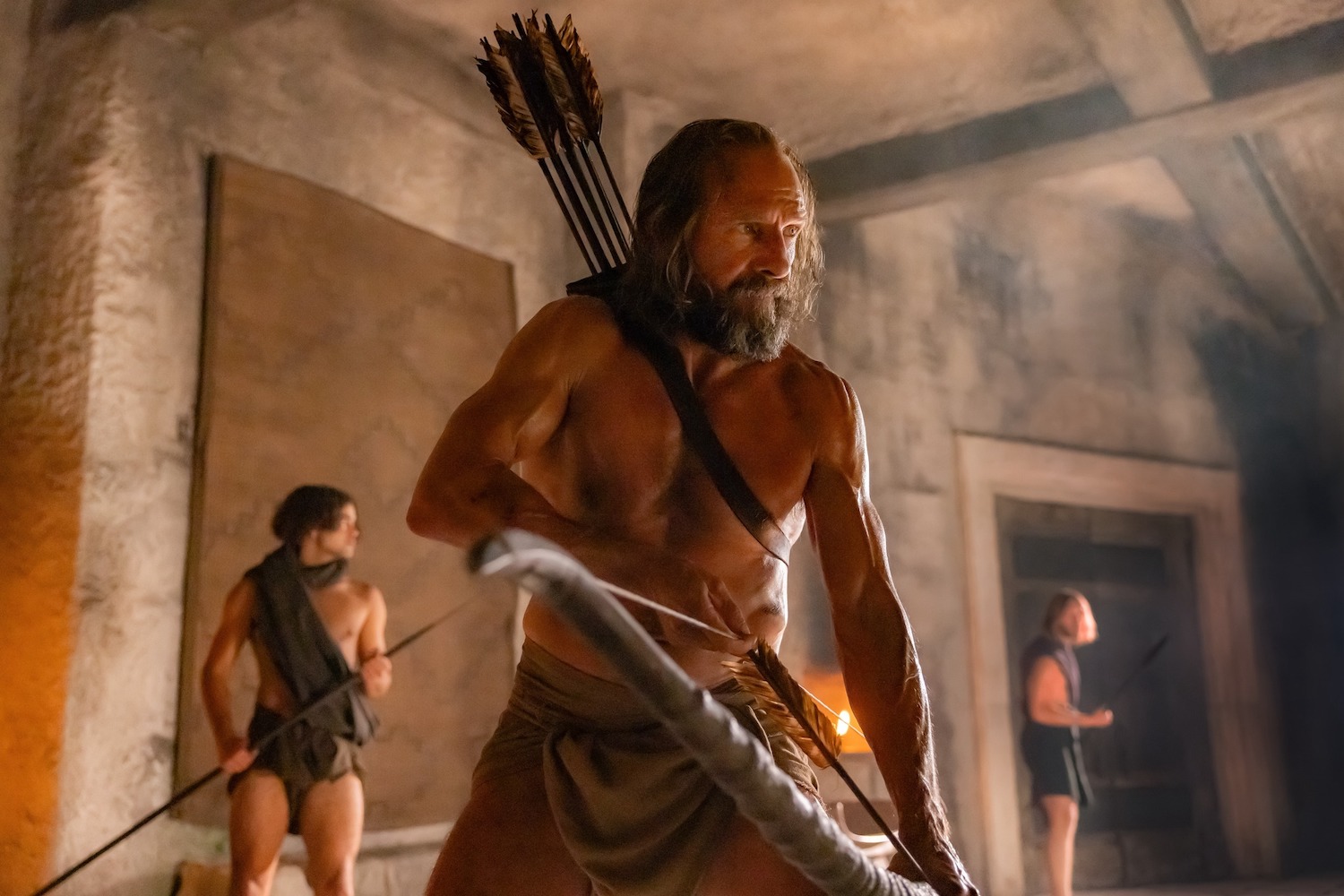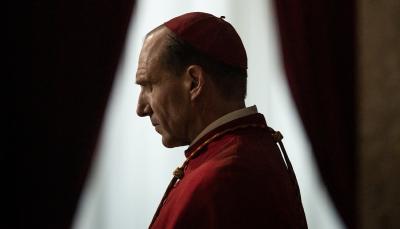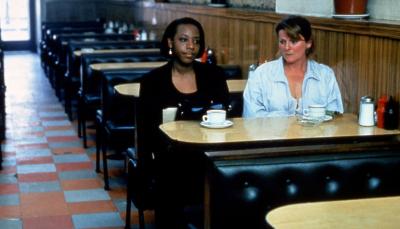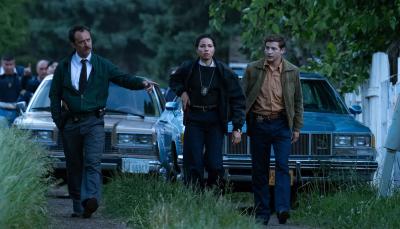'The Return' Is a Trip Better Not Taken
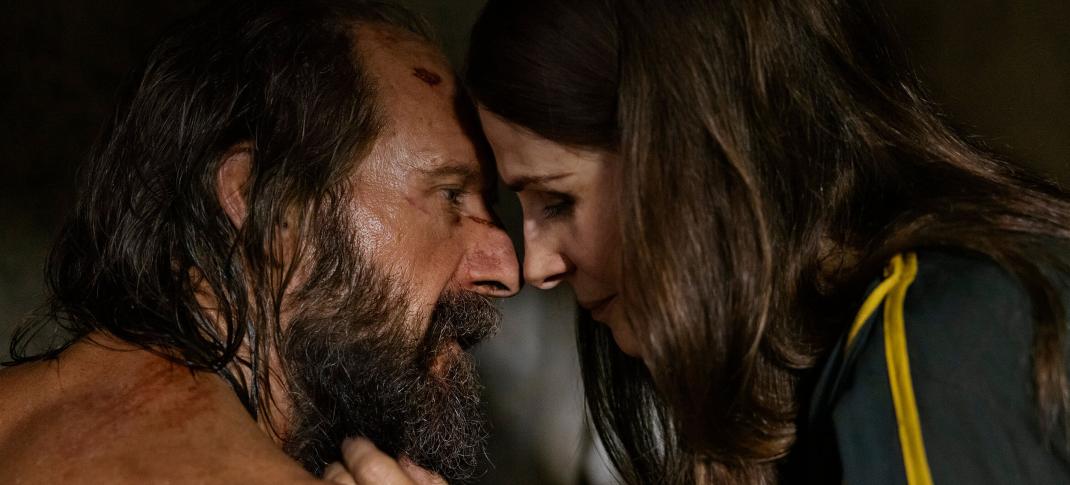
Ralph Fiennes as Odysseus and Juliette Binoche as Penelope in 'The Return'
Bleeker Street
Uberto Pasolini’s The Return isn’t just built off the closing stages of Homer’s Odyssey – featuring a guilt-ridden, lonely Odysseus (Ralph Fiennes) tentatively and reluctantly returning to the frayed, fragile kingdom overseen by his queen Penelope (Juliette Binoche) – it builds on an appealing interpretation of its final scenes. The Trojan War has been fought and won, but Odysseus’ journey home has been just as testing, and when he washes up naked on the shore of his island, Ithaca, surrounded by fragments of his boat, his kingdom is in disarray.
Suitors leer at his wife, who delays choosing one of them to replace Odysseus by weaving and unpicking a burial shroud for Odysseus’ ailing father, and his adolescent son Telemachus has built years of resentment against him – Odysseus returns a timid, shaky man, palpably aware of who he has let down back home. But while The Return taps into a rich vein of Classically Inspired drama, Pasolini’s imagination and craftsmanship deflate the potent promise of his premise, leaving a shredded Fiennes and a reserved Binoche stranded in a distinctly amateurish film that refuses to meaningfully extrapolate beyond the basics.
The Odyssey argues that, after the epic saga of the Trojan War, returning home is as significant as the victory that lets you begin your homecoming journey. The epic poem is filled with obstructive encounters, disguised identities, tests of loyalty, and reflections on the wanderer’s – and broader society’s – relationship to hospitality. Like many Classical texts, the Odyssey has influenced modern storytelling in countless ways – entrenched in the closing stages of the Hero’s Journey is a concept of rebirth, that the person who set out on a quest will not be the same person who returns on its completion.
This idea, central to the Odyssey, is nearly impossible to miss in the classics of the modern era: Frodo cannot return to the Shire; Dorothy’s journey along the yellow brick road helps her get home more than the wizard. But the idea of coming back changed, perhaps even unrecognizable, is also fraught with dramatic tension – look no further than Ulysses by Alfred Tennyson (poet laureate through half the Victorian era). Written by Odysseus back in his seat of leadership, the poem is characterized by Odysseus’ weary, restless demeanor, his twilight years in Ithaca paling in comparison to the urgent action of his adventures.
Pasolini’s film wants to channel the same aches and indecision of revisionist work like Tennyson’s but set before the close of Odyssey’s final pages (although there are no interventions by Gods like in Homer's text). Homer argued that more than king and queen, the bond between father and son deserves a peaceful reconciliation. That’s not the primary focus of The Return, a film about a mortal man and a long-suffering woman inching closer to a revelation that may be the only thing to bring them peace.
The charged, confused dynamic between Odysseus and his son Telemachus (Charlie Plummer) is more defined by how Telemachus perceives his mother's treatment by disrespectful suitors in his father’s absence. Even though Pasolini conceals Odysseus’ identity from his son in a way that Homer would have approved (Odysseus even says he is “nobody,” a nice easter egg), Plummer doesn’t have the chops to go toe-to-toe with Fiennes. His attempts to drown out his father’s muted energy only further reveal the rudimentary nature of Pasolini’s script.
In The Return, Ithaca has grown sparse and faded in Odysseus’ absence (the film was primarily shot in Corfu and the Peloponnese), and the exteriors are complemented by the castle’s gloomy halls and bed chambers. But Pasolini shoots his drama with plain shots, content to level his camera at an actor’s face and let them chew on the same dramatic beats until nothing substantive remains. We are numbed to the precise power of Homer’s relationships. There is no mood, no atmosphere, no sense of wit or panache, and no amount of bitter, snarky bite from the myriad suitors assembled in Odysseus’ keep can stop the ensemble scenes from veering into regional Shakespeare crossed with local TV docudrama territory.
When the film reaches the sudden burst of action that Odysseus uses to purge his home of unwanted suitors, The Return’s lack of sharp, rhythmic style proves to be a benefit – the way that the shirtless, war-weary (and appropriately muscled) Odysseus procedurally picks off his enemies has a heavy, fatalistic clumsiness that feels purposeful and grimly inevitable. It’s a shame the prior short bursts of action are completely inept – flat cinematography does the middling choreography no favors, and Pasolini gets in his own way with arrhythmic, clunky cuts.
Even when The Return reaches the place it was always headed – an intimate reunion between two world-class actors that reframes a mythic war in simple, affecting terms – you don’t feel like you’ve seen anything you couldn’t immediately imagine as soon as you hear the pitch of a “naturalistic European drama reimagining Odysseus’ homecoming”. Instead of making this story feel like an odyssey, Pasolini makes it feel like a chore.
The Return is playing in wide release in the U.S.

